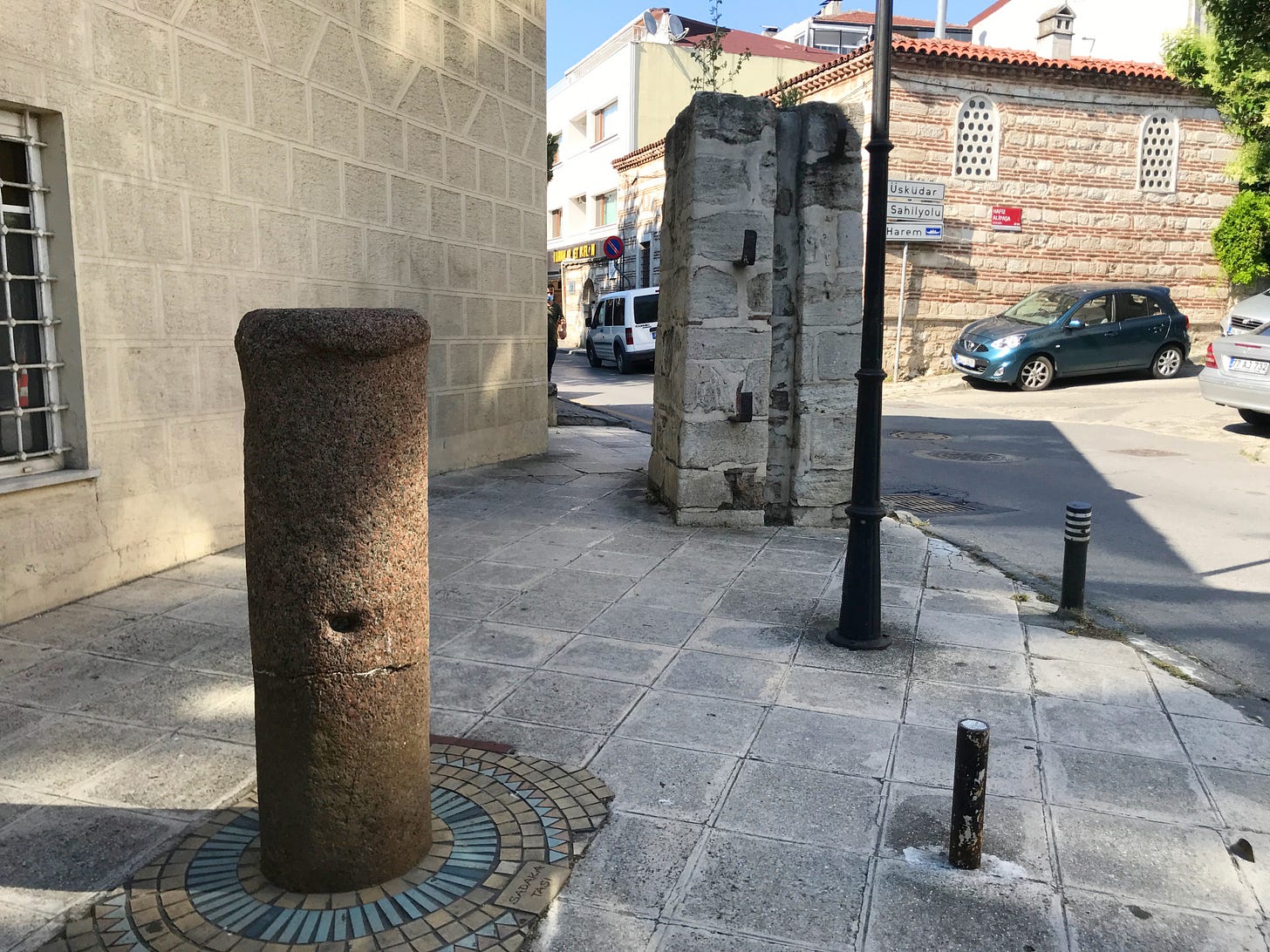Charity Stones and Sacred Money
A look back at some pandemic-era cultural-heritage reporting that's now featured in an award-winning BBC podcast.

Way back in the early weeks of Covid-19 in spring 2020, I came across an item in the Turkish news about a young imam who had set up a type of pop-up food bank at his suburban mosque in Istanbul to help people in his congregation who were struggling with the economic impacts of the pandemic. He said he had been inspired by an old tradition called the sadaka taşı – “charity stone” – something I had never heard of before.
My interest in cultural heritage was piqued and I was trying to find some positive stories to report during this really stressful time so I started looking into the topic. I came across the work of Nidayi Sevim, an independent researcher who had also become fascinated by the subject and ended up writing a whole book about these stones.
It turns out the stones, often more like small pillars, had once been common throughout the Ottoman Empire. Typically set up next to mosques, tombs, bridges, or public fountains, they served as a way to anonymously provide charity: anyone who had some extra coins could leave them on top of the stone, and anyone who needed a bit of money could take them off. A totally trust-based system where no one was getting credit for their good deed or having to prove their need.
Through his research, Sevim documented that at least 150 charity stones had at one time existed in Istanbul, though he was only able to find remnants of around 30 – many half-buried in sidewalks, toppled over, or eroded almost beyond recognition – by the time he published his book in 2009. Since then, he told me, even more have been lost to urban development and neglect, and little is recorded in written form about their historical use.
It’s no wonder, then, that these stones sounded to Taqwa Sadiq like something that was “way too good to be true.” The British Muslim audio producer had heard stories about them during her childhood and set out to verify their existence while working on a podcast for the BBC. She reached out to me last autumn after reading the article that I had ended up writing in 2020 about charity stones and their more modern incarnations.
Sadiq interviewed me for her five-episode podcast series Sacred Money, which came out earlier this year and won two awards at the British Podcast Awards in September. (My interview appears in episode four and it’s a testament to Sadiq’s skills that I didn’t even cringe that much listening to my own voice.) The whole series is a fascinating, in-depth look not just at Islamic traditions of charitable giving and their relevance to contemporary life and social issues, but at broader questions of what we all owe to each other.
Read my original article on charity stones for Atlas Obscura:
The Forgotten Stones That Still Inspire Turks to Help Their Neighbors
A tradition of anonymous charity lives on in the age of COVID-19.
Listen to Taqwa Sadiq’s BBC Sounds podcast:
Could the Muslim tradition Zakat change our views about money, how we spend it and how it connects us to people we know and wider society to help solve the cost of living crisis?




Did you see the charity stone in the Topkapı palace garden?
This is brilliant, will listen!